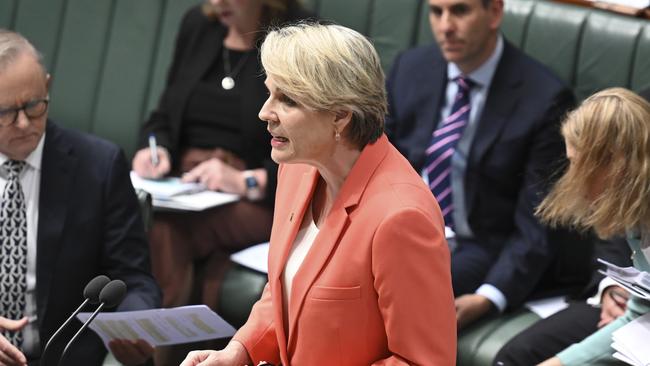Blayney law ‘in need of an overhaul’
The 40-year-old law used to block a NSW tailings dam has been critcised by some for decades for failing to protect heritage

The 40-year-old federal law used to halt a gold mine tailings dam at Blayney in western NSW has been criticised for decades for failing Indigenous Australians and is set to be overhauled or repealed.
The 1984 Aboriginal and Torres Strait Islander Heritage Protection Act was blasted as limited and ineffective by a parliamentary inquiry into the 2020 destruction of Juukan Gorge by Rio Tinto.
The October 2021 report of the Joint Standing Committee on Northern Australia, chaired by Coalition MP Warren Entsch, called for a new overarching Act to protect Indigenous culture from mining and other developments. The Act should set the best practice standards for State and Territory laws, it said.
But this week, Environment Minister Tanya Plibersek told miners the government, which has been working on a new cultural heritage law for almost two years, would not be “rushed” into a new legal framework.
The 1984 Act predates the 1992 Mabo decision and the 1993 Native Title Act. It was designed as a “last resort” when the States rule against Indigenous claims.
The 2021 report noted that, between 2011 and 2016, there were only 22 applications for protection under section 10, used by Ms Plibersek to block the tailings dam. There had been no ministerial declarations in the six years to 2021. In the first four years of the Act’s operation, only one declaration was made.
The committee said applications had increased since Juukan but on average these took two years to be decided.
According to Associate Professor Sarah Holcombe of the University of Queensland, the Blayney case is one of the few times the “moribund” Act has protected a significant site.
Associate Professor Holcombe, who teaches a course on heritage protection in the resources sector, said: “There have been many reviews over the years, and they’ve been very critical of the Act. The vast majority of times where there’s been an injunction (to halt development) it’s been unsuccessful.”
Critics argue State and federal heritage laws across are outdated and confusing to developers as well as Indigenous people.
Michael Mansell, one of Tasmania’s best known Indigenous leaders, says in The Weekend Australian Magazine today that there are big gaps in legislation protecting the ability of Aboriginal people to control work on their past.
“If you’re going to change the way things are done, you’ve got to legislate – and Aboriginal heritage legislation, both federal and state, is in a very poor state,” he says.
Mr Mansell, chair of the Aboriginal Land Council of Tasmania, said: “Native Title provided a significant portion of the Aboriginal community with some sort of land tenure, but the rest of the laws that relate to Native Title have not kept pace. All the other legislation that deals with similar topics has just been left sitting there.
He “applauded” the Blayney decision and criticised “the short sightedness of some Aboriginal groups who, instead of building on Aboriginal gains made 40 years ago, such as the NSW Aboriginal Lands Act, now see those gains as the end of the road”.
This week, Ms Plibersek, told a Minerals Council meeting the government, which has been working on the new law for almost two years, would not be “rushed”. She reminded the miners of the “disastrous” attempt at reform in Western Australian after Juukan; the new 2023 State law prompted a huge backlash from developers and others and was scrapped a month later.
Ms Plibersek said: “All those years of work you spent assisting government develop those reforms were wasted – leaving you with no progress and no greater certainty.
“We have learned the lessons from their approach. We will methodically and carefully continue to work through any proposed changes and test them broadly before introduction … business needs to know who they need to consult – ‘who are the right people to talk for Country?”
The government is working with the First Nations Heritage Protection Alliance and Ms Plibersek said the goal was “to provide certainty about requirements and certainty about who to talk to”.
The joint committee recommended that while the new legal framework was being drawn up, responsibility for the 1984 Act should revert to the Minister for Indigenous Australians, away from the Environment Minister – but this was not accepted by the Albanese government.
“Time and time again, states have prioritised development over the protection of cultural heritage−including through the enactment of site-specific development legislation intended to further dispossess Aboriginal and Torres Strait Islander peoples,” the report said. “The resources industry has also called for reform .. It too wants a clear set of guidelines−with adequate penalties.”



